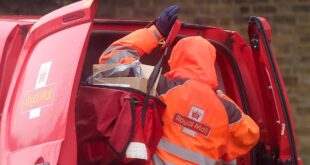Junior doctors in the British Medical Association (BMA) and Hospital Consultants and Specialists Association (HCSA) are taking four consecutive days of strikes this week. World Socialist Web Site reporters visited picket lines on the first day of the action.
Victoria was picketing Sheffield’s Northern General Hospital. She has been a doctor for six years, the last two in palliative care. “I’m striking today for full pay restoration, to help our workforce crisis and help retain and recruit doctors, and to get better conditions for everyone.
“The fact that the strike is four days, it’s extreme measures, but it’s what has had to happen to get the government to engage in some meaningful talks so that we can move forward and get back to work.”
Victoria added, “I think there is a lot of public support. I think people understand that we’re doing it for our patients and not just for ourselves.”
WSWS reporters asked Victoria what she thought of NHS workers being mobilised as part of a general strike, given that hundreds of thousands of workers have been involved in industrial action over the last nine months. “Yes, I agree, it’s not just doctors, it’s nurses and others working in the NHS. It’s teachers and so on. We should all support each other because we’re all fighting for the same things,” she replied.
Ranjit, a doctor for five years, detailed the pressures on junior doctors, forcing some to leave the NHS. “Training jobs within the NHS don’t actually include a huge amount of training because of short staffing, the demands, and it’s often case of service provision and patching gaps. And the training more happens in our ‘free time.’
“Those sorts of conditions and the difficulties in working have led to a lot of my colleagues leaving to either go to Australia or New Zealand or to go into private industry where they’re treated a lot better.
“What pay restoration would do is reverse that sort of drain, because we’re losing a lot of doctors. I don’t really want to go halfway across the world, and I like the NHS as a concept and I like my work as a doctor. But it’s compromise after compromise.
“When you go into this training role you realise that your teaching may be cancelled week on week because of demand or there is no one around to do it. You realise you may be moved to a different placement which is not what you wanted to do and you might then spend four to six months doing something you don’t really want to do, merely to satisfy a ‘training need’.
“These things aren’t too bad on their own but when you have them all piled together, with pay eroding the way it has, it does put you between a rock and a hard place in some ways. Striking is really difficult as a concept, but it just shows where things have gone.”
A junior doctor of 7 years’ service, speaking anonymously, said, “Since I started the hospital has become ever busier, especially since the COVID outbreak. There is a massive burnout, not just with junior doctors, but across the board, including consultants and other grades and all health workers. We have all been out on strike across the NHS and I see it as us all being involved in the same struggle.
“The COVID pandemic had an unprecedented impact on everyone, and especially the NHS. We worked way past the hours we should have. There were the most horrible situations we had to deal with. We have been told that everything is now ‘back to normal’. The NHS has been left dealing with the fallout which was already developing before COVID—the pandemic just made it a lot worse. There hasn’t been any extra resources extra resources or funding for a workforce which is exhausted physically and emotionally.”
Opposing right-wing media attacks on striking doctors she said, “The huge growth in waiting lists for treatment [7 million] sit with the Conservative government who have decimated the NHS. I worry for my colleagues who are working this week in emergency care during the strike but there is no other way to fight this than strike action. We have been screaming from the rafters for many years and governments have ignored us.”
The doctor opposed the refusal of the health trade unions to organise joint action in the health sector, saying, “I think the strikes in the public sector should be more unified, the government has divided us, partly, through holding separate negotiations, but I want pay restoration for all NHS workers, so we need to act together.”
The doctor had been following the fight by hundreds of thousands of Royal College of Nursing (RNC) members, and said of the below inflation pay deal the union leadership have agreed with the government, “I don’t think they [members] should accept it; it doesn’t reflect the work they do or the decrement in the pay that they have lost over many years. I would like to see us all joined up, fighting together.” In relation to the BMA’s deal being put to Scottish junior doctors, also way below inflation, she said, “I would vote against it if it were put to us.”
She had followed the campaign of rank-and-file RCN nurses who organised a ballot to call for an emergency meeting to remove Pay Cullen and the leadership for calling off the nurses’ strike in an attempt to impose their rotten deal: “It’s a good call that the membership of the unions are trying to hold their leadership to account and reject this deal. We should have a full say and control of our dispute.”
Trainee GP Caitlin joined the Hospital Consultants and Specialists Association doctors’ picket outside Salford Royal Hospital.
She said, “I’m striking for better working conditions and better pay. Our NHS is in absolute crisis at the moment in terms of staffing. As a doctor on the frontline, it’s been underfunded for years.
“I have to pay lots of fees to keep my registration which adds to thousands of pounds a year. With the cost of house prices, childcare and rent, it’s almost impossible to feel comfortable. It’s strange coming out of university, and 12 years later not being financially secure.
“I came out with almost £45,000 of debt,” she added. “At the moment interest rates on my student loan have increased. At 4.5 percent each month I’m paying £250 on my student loan, and £50 of that is interest, so I’m not even paying it off fast, it’s really depressing.”
Asked what she thought about the other health unions calling off their disputes to push through below inflation deals and isolating the junior doctors, she said, “I think we should have a general strike, a general workers’ strike all together and fight against the system we’re in at the moment. The people who have lots of power have no interest in equality. I stand with the teachers, I stand with the ambulance drivers, I stand with the rail strike and it’s sad that they have accepted below inflation deals.”
Caitlin said she was involved in the 2016 strike and moved abroad to New Zealand for years because she was “so disillusioned” after the BMA’s sellout. “It’s been a real shock to come back, because my pay has gone down by over half. I’m looking at starting my own family, and it’s really not viable. I came back thinking things might have moved on but they haven’t; they’re worse than they were before in terms of the pay and conditions.
“What used to happen when there was a gap in the rota, they had people to draw on who were external to the colleagues we have on the shift, but now they’re just asking us to do extra hours over and above what we are doing already. There aren’t enough staff. That’s not just doctors, that’s nurses, that’s midwives. At St Mary’s [hospital] the obs and gynae [obstetrics and gynaecology] situation is terrible, and that’s across the whole of the NHS. It’s unsustainable, scary, unsafe, and dangerous.
“They managed to find the ‘magic money tree’ for defence spending, for PPE that they poured money into that didn’t even work. There’s money there, but it’s a political choice not to support workers.”
Source link


